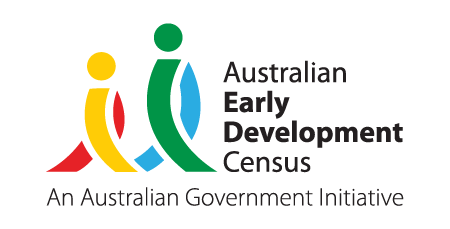On this page
Policy makers can find guidance on this page on why and how to use Australian Early Development Census (AEDC) data, including how to access and use the data and examples of how other policy makers have used it.
About the AEDC
The Australian Early Development Census (AEDC):
- provides vital evidence for policy makers and stakeholders to work together to ensure children and families can access the right mix of universal and targeted services at the right time in a child’s life
- identifies trends and areas in need of improvement, helping guide policies, funding, and services, to address the changing needs of children and families.

Get a broader overview of the AEDC, including details on what the collection measures and how to access and understand the data:
Why investing in early childhood development is important
Investing in early childhood can help:
- reduce future costs in special education, criminal justice, and welfare services
- improve workforce skills, reduce disadvantage and boost productivity
- improve life course health, development, wellbeing and education outcomes for South Australia’s children
- South Australia to reduce the proportion of children developmentally vulnerable on 1 or more AEDC domains to 15% by 2043 as recommended by the Royal Commission into Early Childhood Education and Care.
Policy makers can keep children and early childhood development needs front of mind in a broad range of policy responses that address determinants of health and wellbeing, as well as education and care.
Read more about why the AEDC is important.
How the data can help policy makers
Using AEDC as an evidence source can assist in responding to strategic factors which may be influencing your work.
You can use the AEDC as an evidence base to:
- inform policy and strategic planning – find some examples below on this page
- review services to ensure they are supporting families and children
- examine solutions to barriers to access for families
- inform resource allocation and use of assets
- inform grant funding programs
- inform collaborative approaches
- plan responses to national, state and local government strategic frameworks and policy settings
- place-based approaches
- evaluate the impact of policies and services
- measure progress overtime.
Visit the national AEDC website to learn more about how the AEDC assists policy reform and how equity in early childhood can be improved.
Using AEDC data – guidance and resources
Policy placemat
The AEDC policy placemat summarises key policy and research findings learned from the AEDC including insights into:
- factors that predict children’s outcomes as measured by the AEDC
- outcomes the AEDC predicts.
User guide – policy makers and government executive
The AEDC user guide for policy makers and government executive supports policy makers in effectively using AEDC data. This data is instrumental in shaping early years systems and ensuring that all children thrive.
User guide – local government
The AEDC user guide for local government supports local government leaders and staff to utilise AEDC data to inform their planning for children in their community or local government area.
Video: using the data to inform policy and planning (5:42)
Video transcript – using the data to inform policy and planning
Accessing the data
The reporting, publication and/or analysis of AEDC data and results must be in accordance with the AEDC data guidelines.
You can find more details on accessing AEDC data including under agreement or application.

South Australian results and resources
You can find resources presenting South Australian results on our website:

National results
AEDC data is publicly available on the AEDC Data Hub and is reported at a national, state and community level.
Additional data products
Additional data products for download include time series tables by LGA, SA2, SA3, SA4, GCCSA, Remoteness, GIS data and SEIFA.
Examples: using AEDC data to inform policy and planning
Examples of where AEDC data has been used by policy makers include:
- early years reforms (Office for Early Childhood Development)
- Child Care Deserts report (Mitchell Institute) and Targeting investment where it counts report (Social Ventures)
- Productivity commission report on Early Childhood Education and Care
- Australian government early childhood policy settings
- South Australia’s:
Example 1 – a baseline for strategic goals
The Office for Early Childhood Development was established with a clear mandate: to create a fairer and better future for all children in South Australia.
The government has committed to an ambitious 20-year goal to guide their actions: to reduce the rate of South Australian children entering school developmentally vulnerable from the 2021 AEDC baseline of 23.8% to 15%.

Example 2 – data supporting health and wellbeing planning and evaluation
South Australia uses AEDC results to assess the early childhood indicator within the 'promote' domain of the Public Health Indicators Framework, which supports the State Public Health Plan 2019-2024.
This plan aims to address various factors that influence health and wellbeing, including social, economic, and environmental conditions, genetic factors, and access to healthcare and other services.
To assist with this, local governments can refer to the Regional Public Health Planning: Using AEDC Data guide (PDF 1.1MB) when developing their Regional Public Health Plans.


Get inspired: SA case studies
Read South Australian case studies for inspiration on how you might use the AEDC.

Got a story to share?
If you have an AEDC story to share, we'd love to hear from you.
How the AEDC team can help
We're here to help! Contact our team for help with:
- understanding AEDC results
- identifying factors influencing children’s development
- using the AEDC data.


